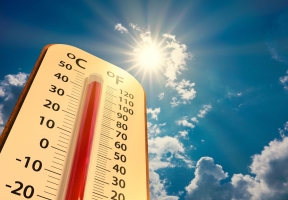
With dangerously high levels of heat forecast across the state of Illinois in the coming days, including heat index forecasts approaching 100 degrees, the Illinois Department of Public Health (IDPH) is warning Illinoisans to take preventive actions to avoid heat-related illnesses. Exposure to extreme heat, and especially prolonged exposure, can cause serious health complications, including heat exhaustion and heatstroke, IDPH officials said. The Department is urging Illinoisans to take precautions and protect themselves, their families and their pets from overheating and heat-related illnesses.
You can protect yourself from heatstroke and heat exhaustion with these basic steps:
• Stay in an air-conditioned area during the hottest hours of the day. If you don’t have air conditioning in your home, go to a public place such as a shopping mall or a library to stay cool. Or check for cooling centers at the Keep Cool Illinois website.
• Wear light, light-colored, loose-fitting clothing, as it reflects heat and sunlight.
• Stay hydrated by drinking plenty of water often and don’t wait until you are thirsty. Avoid beverages that can dehydrate you like those that contain caffeine or alcohol.
• Avoid unnecessary hard work or activities if you are outside or in a building without air-conditioning, especially during times of peak heat from 10 a.m. to 4 p.m.
• Slow down. Strenuous activities should be reduced, eliminated, or rescheduled to the coolest time of the day. Those at risk should stay in the coolest available place, not necessarily indoors.
Heat can also adversely affect the health of pets. To keep your pets safe:
• Never leave your pet in a parked car – they can suffer from heat-related illness too.
• Provide plenty of fresh water for your pets and leave the water in a shady area.
Additional information about heat related illnesses and how to avoid them can be found on at the following IDPH site for Hot Weather: Understanding and Preventing Heat-Related Illnesses, and also on the following National Weather Service heat safety website.









